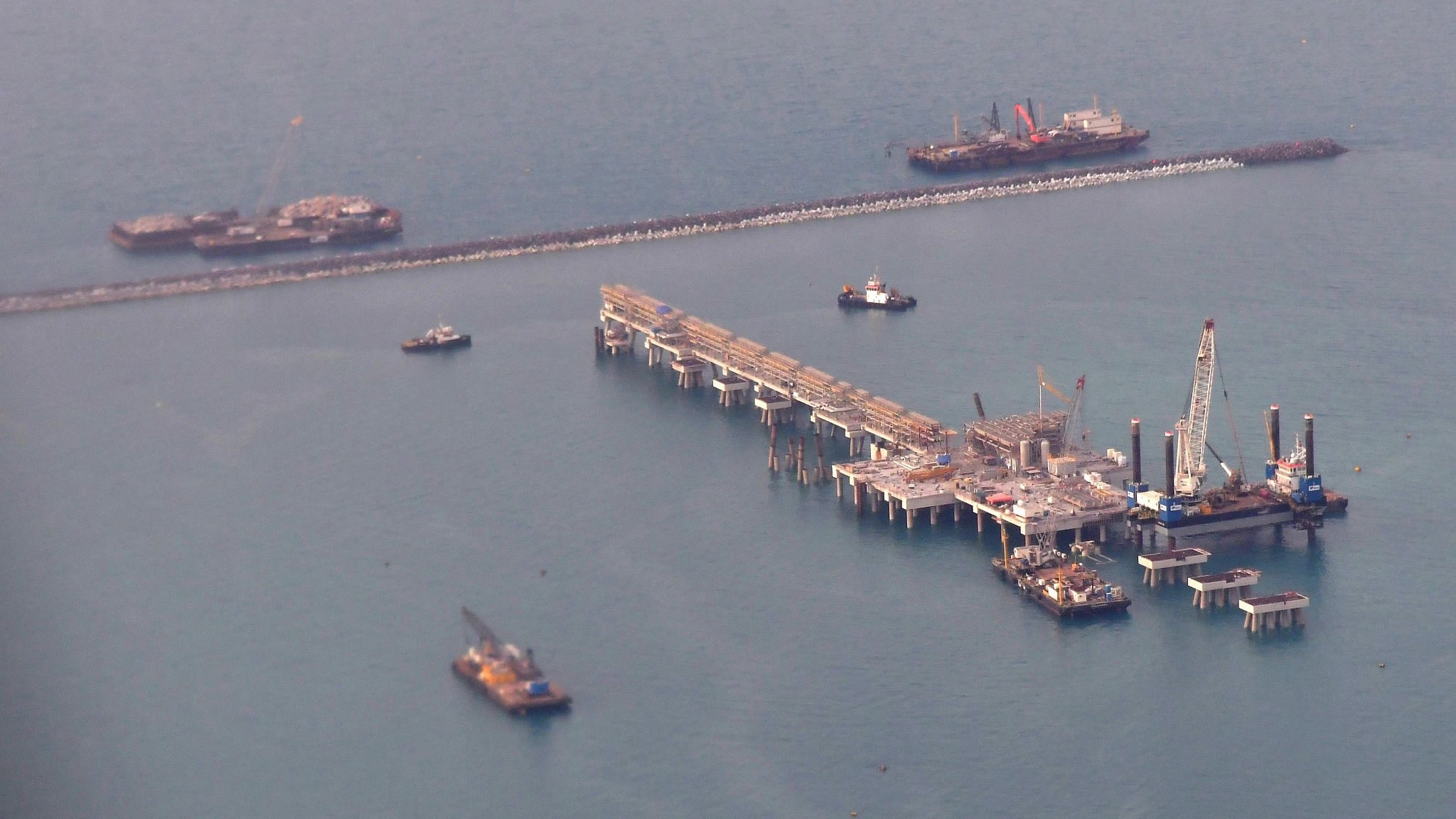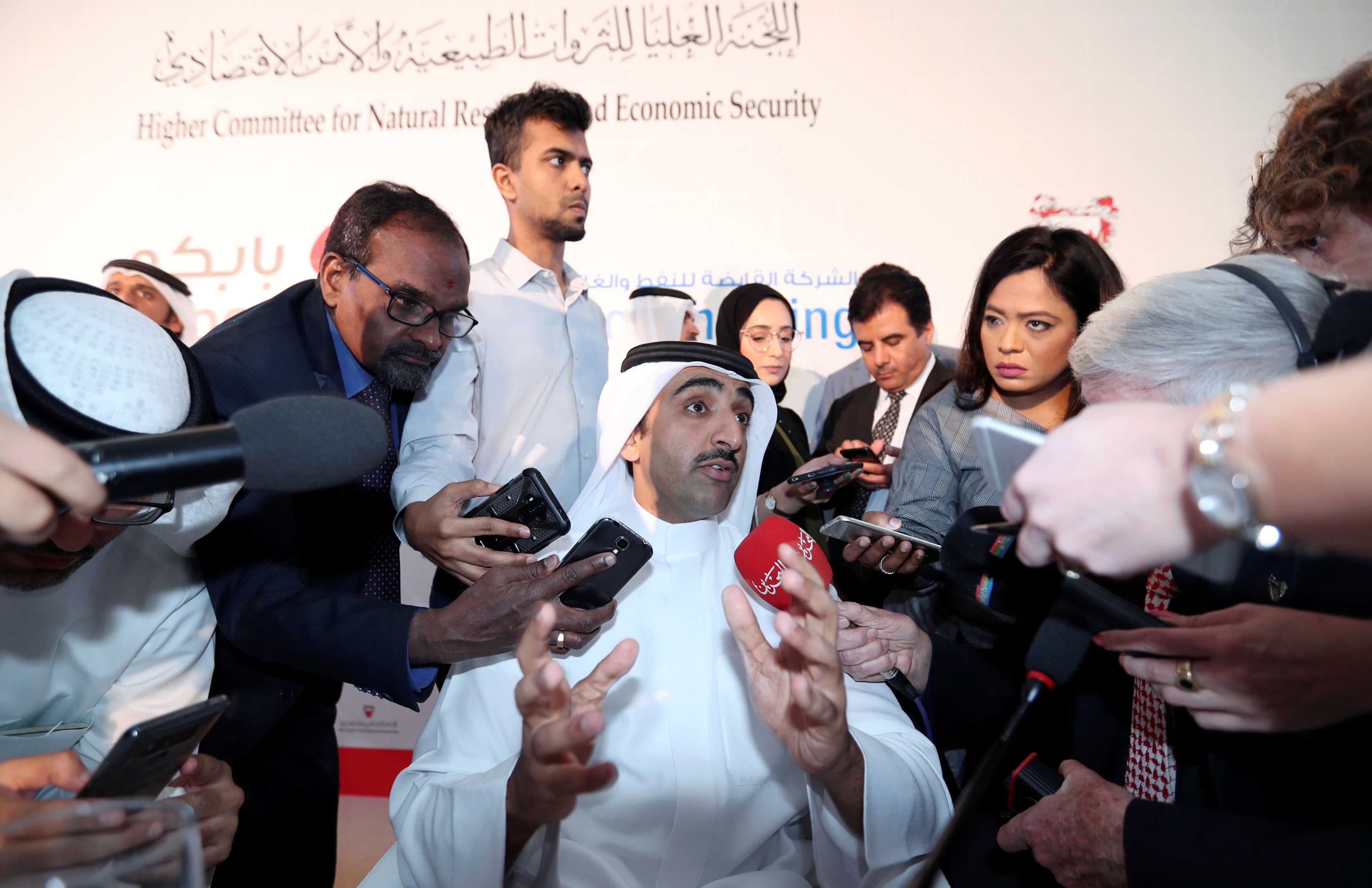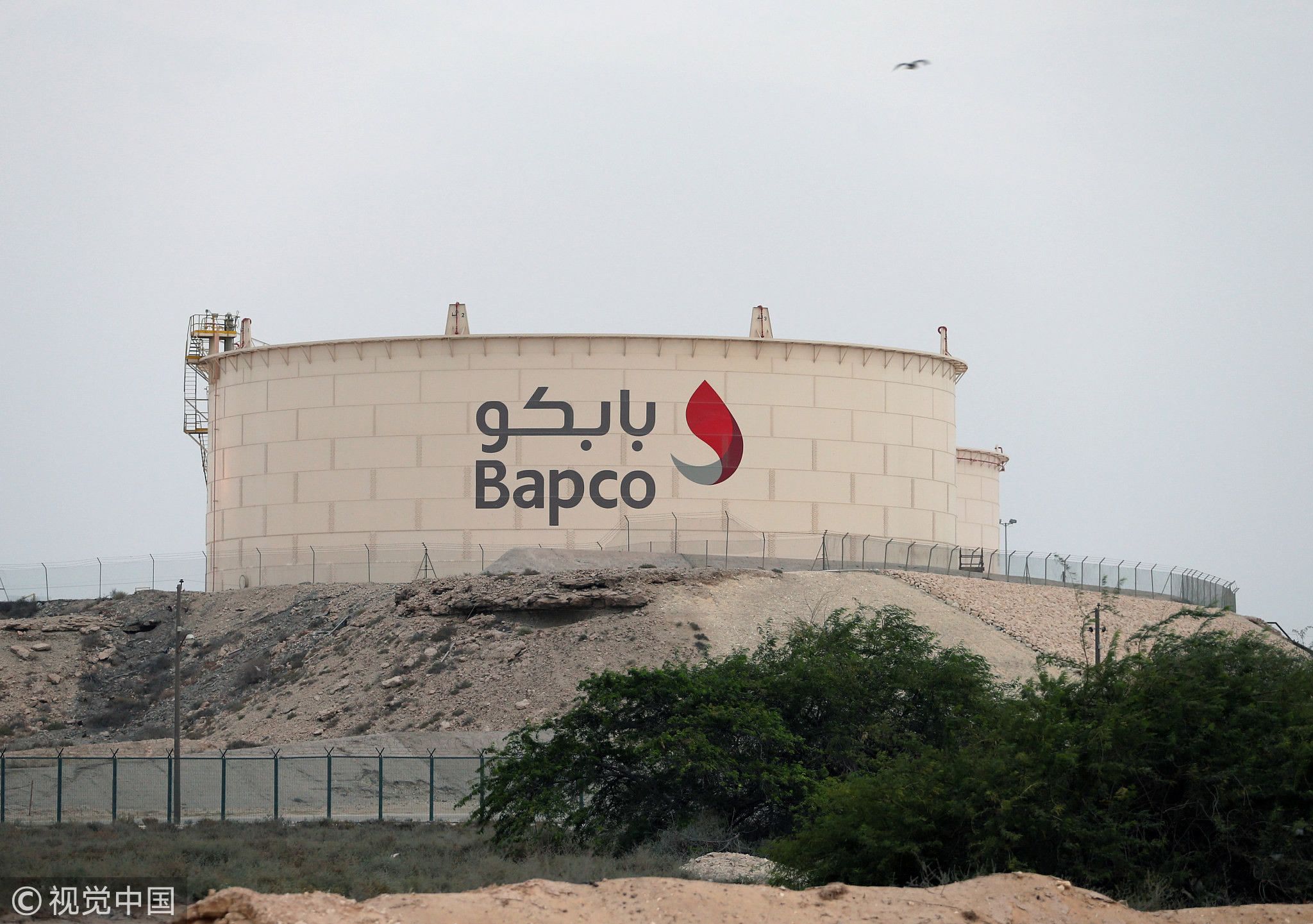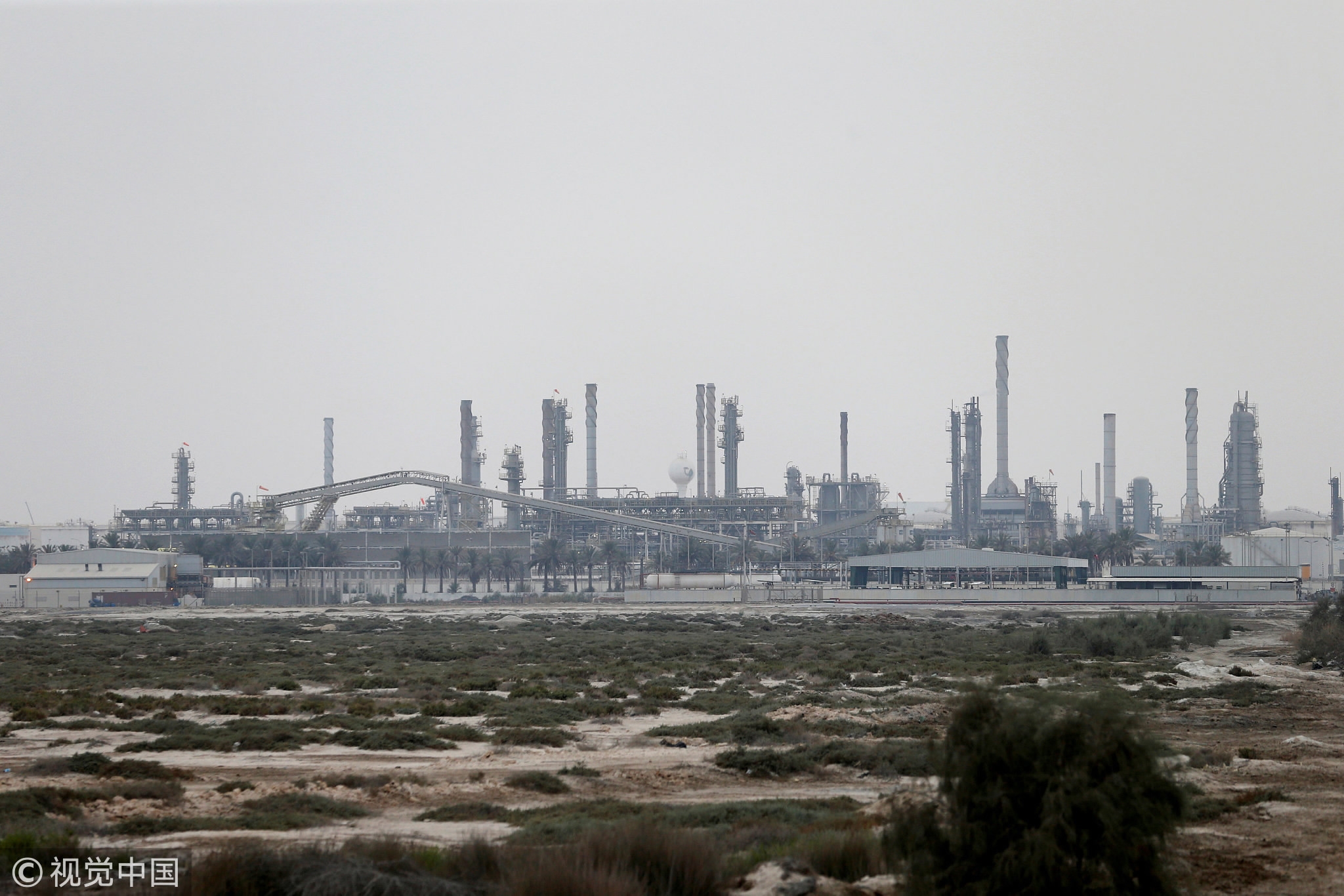
World
11:13, 05-Apr-2018
Bahrain announces biggest ever oil discovery since 1932
By Abhishek G Bhaya

Bahrain on Wednesday announced its biggest ever discovery of oil and gas reserves, with tight oil amounting to at least 80 billion barrels and deep gas reserves of between 10-20 trillion cubic feet, according to a press release by the Gulf kingdom’s National Communication Centre.
Providing new details of the new discovery at a press conference, Bahrain’s National Oil and Gas Authority (NOGA) and international consultants DeGolyer and MacNaughton, Halliburton, and Schlumberger revealed that the site of the oil reserve is in the Khalij Al-Bahrain (Gulf of Bahrain) basin, located off the western coast of the kingdom.
It is close to a fully-operational oil field with ready-to-connect-to facilities, according to Halliburton, which added that this unique factor provides the potential for significant cost optimization.
A separate discovery of significant gas reserves in two accumulations below Bahrain’s main gas reservoir has been confirmed.
This is the largest discovery of oil in the kingdom since 1932, when extraction started on Bahrain's first oil well within the Bahrain Oil Field.
Extensive work has already been carried out to evaluate in-place volumes. The first well in the drilling program is planned to produce in August, and over the next two years focus will be given to maximizing production and commercial efficiency, according to the press release.

Bahrain's Oil Minister Sheikh Mohammed bin Khalifa Al Khalifa speaks to reporters during a press conference in Manama, Bahrain, on April 4, 2018. /VCG Photo
Bahrain's Oil Minister Sheikh Mohammed bin Khalifa Al Khalifa speaks to reporters during a press conference in Manama, Bahrain, on April 4, 2018. /VCG Photo
Bahrain’s Oil Minister Sheikh Mohammed bin Khalifa Al Khalifa said that an “agreement had been reached with Halliburton to commence drilling on two further appraisal wells in 2018, to further evaluate reservoir potential, optimize completions, and initiate long-term production.”
“Oil in place of 80 billion barrels is based on a P50 resource estimate,” said DeGolyer and MacNaughton Senior Vice president, John Hornbrook. Hornbrook added that “the discovery breaks new ground for the Bahrain oil and gas industry using established technologies.”
Positive test well results have successfully demonstrated the productivity of the significant resource, with Schlumberger, which performed the first test well drilling, adding that Bahrain Petroleum Company (Bapco) has already succeeded in flowing high-quality oil from the wells during the testing and flow back phases.
“Based on the core analysis carried out on several wells the formation could be classified at the edge of the conventional-unconventional type of plays,” a Schlumberger spokesperson said at Wednesday’s press conference.
Bapco’s chief exploration geologist in charge of the discovery, Yahya Alansari, added that “the presence of a layer with moderate conventional reservoir properties on top of an organic-rich source rock creates a unique self-sourcing and trapping system, enhancing production and economic viability. The confirmation of this significant resource highlights the vast E&P (exploration and production) potential and opportunities in Bahrain.”

Fuel storage tank of state-run Bahrain Petroleum Co (Bapco) refinery is seen in Ma'aameer, south of Manama, Bahrain, on August 22, 2017. /VCG Photo
Fuel storage tank of state-run Bahrain Petroleum Co (Bapco) refinery is seen in Ma'aameer, south of Manama, Bahrain, on August 22, 2017. /VCG Photo
The newly-discovered resource, which officials expect to be ‘on production’ within five years, is expected to provide significant and long-term positive benefits to the Kingdom’s economy – both directly and indirectly through downstream activities in related industries.
NOGA added that the next stage of development will focus on ensuring robust frameworks, data and terms are in place to facilitate further activities and commercial opportunities with international partners.
China is among Bahrain’s top international trading partners. According to latest available figures from the World Bank, China was among the top four buyers of crude from Bahrain in 2016 with imports worth nearly 470 million US dollars.
Since 2011, China has been the largest importer to Bahrain, with non-oil imports touching 1.43 billion US dollars in 2016, according to World Bank data. China is also currently the third largest non-GCC market for Bahraini exports.
The kingdom is host to many leading Chinese companies, which have established offices or facilities in Bahrain to access the wider Gulf market, these include: Huawei, Bank of China, China Harbour Engineering Company Ltd, and CPIC.

State-run Bahrain Petroleum Co (Bapco) refinery is seen during the early evening hours from the village of Ma'aameer, south of Manama, Bahrain, on August 22, 2017. /VCG Photo
State-run Bahrain Petroleum Co (Bapco) refinery is seen during the early evening hours from the village of Ma'aameer, south of Manama, Bahrain, on August 22, 2017. /VCG Photo
Officials did not give a specific figure on Wednesday for expected production levels from the new field, but local Bahraini daily Al Ayam quoted the head of the financial and economic committee in parliament, Abdulrahman Bu Ali, as saying output was expected to be 200,000 barrels per day.
The small non-OPEC Gulf oil producer, with around 124.6 million barrels of proven reserves, gets its oil revenues from two fields: the onshore Bahrain field, and the offshore Abu Safah field, which is shared jointly with Saudi Arabia.
The Bahrain field, produced around 50,000 bpd in 2015, according to the US Energy Information Administration. Bahrain and Saudi Arabia split annual revenues from the 300,000 bpd Abu Safah offshore field where production is overseen by Saudi Aramco.
The Bahraini government earned 4.3 billion US dollars in oil and gas revenue last year and ran a budget deficit of 2.7 billion US dollars.
(With input from agencies)
[Cover Photo: An aerial view of an offshore oil platform in Bahrain on April 4, 2018. /VCG Photo]
6187km

SITEMAP
Copyright © 2018 CGTN. Beijing ICP prepared NO.16065310-3
Copyright © 2018 CGTN. Beijing ICP prepared NO.16065310-3